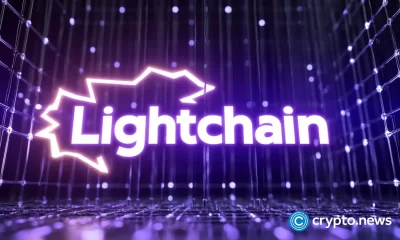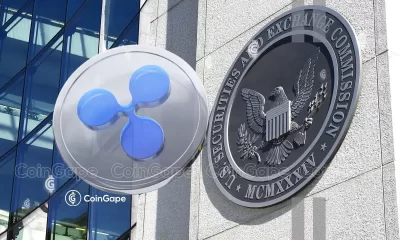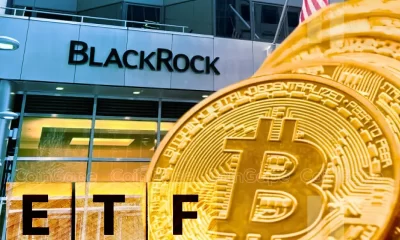crypto license
Philippines SEC releases new crypto regulatory framework draft
Published
1 day agoon
By
admin

The Securities and Exchange Commission Philippines shared a draft of its cryptocurrency regulations framework. Stakeholders are invited to give feedback on the draft no later than Jan. 18, 2025.
According to the recently shared document, the published regulatory draft is titled “SEC Rules on Crypto-Assets Service Providers (CASP Rules).” The framework covers a range of crypto trading activities, including the requirements necessary to get an SEC-issued license, market activities, and public offerings.
The SEC Philippines emphasized the importance of creating a regulatory framework for cryptocurrency, as the nation has seen rapid growth in the sector.
“The continued growth and development of new crypto asset markets, services, and business models relies on clear, proportionate, and robust regulatory frameworks, which can ensure that markets are fair, efficient, and transparent.”
As a result, the SEC proposed through the draft that crypto service providers must register with the SEC and obtain a CASP license if they wish to operate in the Philippines. Stakeholders are also urged to give input regarding the regulatory framework up until Jan. 18, 2025.
To be eligible for a CASP license, firms have to comply with the rules outlined in the framework, have at least four staff members who reside in the country, must have a stock corporation registered with the SEC, and must meet the minimum capital requirements set by the SEC.
If a registered firm is thought to have violated the rules outlined in the framework, the SEC will conduct an investigation into the crypto firm’s business dealings and daily operations to detect any wrongdoings. Sanctions include fines, a cease and desist order, and revocation of the CASP license.
In order to mitigate risks of money laundering and cybersecurity threats, CASP license holders are expected to align their systems in accordance with the National Cybersecurity Plan. They also have to go through regular audits and review procedures to ensure their systems are protected against emerging threats.
On the other hand, companies planning to conduct public offerings to sell or distribute crypto assets must first submit a disclosure document to the SEC. The document should also be published on the firm’s website and all social media platforms at least 30 days before the actual offering takes place.
The disclosure document should include information on the crypto asset offeror, the crypto asset issuer, the underlying technology used, rights and obligations linked to the crypto asset, potential risks, and warnings about the possible loss of value.
Additionally, the document also has a special section outlining the prohibition of market manipulation, insider trading, and unlawful disclosure of Information.
In May 2024, the Philippine SEC Chair Emilio B. Aquino declared that the government agency would introduce a set of guidelines to regulate crypto trading activity by the second half of 2024. The announcement came a few months after the Philippine SEC banned Binance from operating without a license.
Source link
You may like


Why it’s a better investment than Solana or Ripple in 2024


Six Bitcoin (BTC) Mutual Funds to Launch in Israel Next Week: Report


What Happens If Paul Atkins Dismisses the XRP Lawsuit?


Malicious Google ad campaign redirects crypto users to fake Pudgy Penguins website


BlackRock Bitcoin ETF (IBIT) Records Largest-Ever Outflow of $188M


Solana (SOL) Gearing Up: Is a New Surge on the Horizon?
crypto license
Kraken launches Bermuda-based crypto derivatives venue
Published
3 months agoon
October 3, 2024By
admin

Kraken has expanded its offshore with a new derivatives trading venue in Bermuda, licensed by the Bermuda Monetary Authority.
Kraken, a major global cryptocurrency exchange, has launched a new derivatives trading platform in Bermuda after securing a digital asset business license from the Bermuda Monetary Authority, according to a company press release.
The move comes as the U.S. Securities and Exchange Commission increases scrutiny on crypto exchanges, pushing firms like Kraken to seek offshore opportunities.
With the BMA license, Kraken can now offer its clients a range of crypto derivatives, including perpetual and fixed-maturity futures, using various types of collateral, such as fiat currencies and over 30 cryptocurrencies, the release said.
Derivatives are financial contracts that allow users to speculate on or hedge against the future value of assets. They have become a key feature in crypto trading and account for most of the trading volume globally. Offering derivatives helps clients manage risk efficiently while capitalizing on market opportunities.
Kraken in Bermuda
Bermuda has become an attractive destination for crypto businesses due to its clear regulatory framework. Kraken joins other major players like Coinbase and HashKey Global, which have also received BMA licenses.
Kraken’s new platform enables round-the-clock trading, reflecting the 24/7 nature of the crypto market, and aims to attract clients looking for a regulated venue with a broad range of derivatives products.
Source link
BitGo
BitGo secures major payment license from Singapore’s MAS
Published
5 months agoon
August 8, 2024By
admin

California-based digital asset trust and security company BitGo has received a Major Payment Institution license from the Monetary Authority of Singapore.
The company made the announcement on Aug. 8, stating that the MPI license allows it to offer regulated crypto payment services in Singapore, including custody and trading.
BitGo is pleased to announce that we have obtained the Major Payment Institution Licence from the Monetary Authority of Singapore.
We are committed to meeting the rising demands of client needs in Asia through regulated digital payment token services. This includes our… pic.twitter.com/4DAgKvLVVD
— BitGo (@BitGo) August 8, 2024
Following the approval, BitGo’s Singapore clients will be able to buy and sell crypto from the company’s cold storage custody solutions. Additionally, according to BitGo, the services will include access to its liquidity as well as insured cold storage custody solutions.
BitGo’s acquisition of the MPI license comes only days after HashKey Group’s over-the-counter trading subsidiary received similar approval from the Singapore regulator. It also comes about six months after BitGo obtained an initial in-principle approval as an MPI.
The crypto custodian now joins 27 other digital asset companies, including Coinbase and Ripple (XRP), which have already secured full MPI licenses to offer crypto services in the city state.
Singapore has tried to build a strong regulatory framework for crypto, primarily overseen by MAS. They include the enactment of the Payment Services Act in 2019, as well as rules restricting digital payment providers from promoting their services to the general public.
Crypto ownership in the tiny Asian country is one of the highest in the world. According to a recent report from global crypto payments provider Triple-A, more than 24% of Singaporeans owned some form of crypto. It puts the country only second to the United Arab Emirates in terms of crypto ownership, with 25.3% of the Middle-Eastern country’s citizenry holding crypto.
Per the report, the United States is much further behind, with only 15.5% of its population holding digital assets. However, unlike Singapore, crypto regulation in the U.S. is still not as clear cut, with the country’s regulator, the U.S. Securities and Exchange Commission accused of hampering the growth of the industry through its hard stance on crypto.
Source link

Why it’s a better investment than Solana or Ripple in 2024

Six Bitcoin (BTC) Mutual Funds to Launch in Israel Next Week: Report

What Happens If Paul Atkins Dismisses the XRP Lawsuit?

Malicious Google ad campaign redirects crypto users to fake Pudgy Penguins website

BlackRock Bitcoin ETF (IBIT) Records Largest-Ever Outflow of $188M

Solana (SOL) Gearing Up: Is a New Surge on the Horizon?

XRP, SOL, NEAR, DOGEN, and DOT poised to explode

Crypto Trader Turned $90 Into $3.25M As Token Skyrockets 5,500%

Here’s a Potential Downside Price Target for Cardano If ADA Sees New Correction, According to Benjamin Cowen

Which crypto will explode in 2025? Expert insights and predictions

XRP Price Pumps 7% On Christmas Eve, Will It Reach Yearly Highs?

XRP firmly above $1, ADA and LCAI to steal the spotlight

The 69 Dumbest Moments of the Year: 2024 Crypto Edition

Here’s What To Expect After Pectra Upgrade

Top 5 meme coins for 12,000x gains
182267361726451435

Why Did Trump Change His Mind on Bitcoin?

Top Crypto News Headlines of The Week

New U.S. president must bring clarity to crypto regulation, analyst says

Will XRP Price Defend $0.5 Support If SEC Decides to Appeal?

Bitcoin Open-Source Development Takes The Stage In Nashville

Ethereum, Solana touch key levels as Bitcoin spikes

Bitcoin 20% Surge In 3 Weeks Teases Record-Breaking Potential

Ethereum Crash A Buying Opportunity? This Whale Thinks So

Shiba Inu Price Slips 4% as 3500% Burn Rate Surge Fails to Halt Correction

Washington financial watchdog warns of scam involving fake crypto ‘professors’

‘Hamster Kombat’ Airdrop Delayed as Pre-Market Trading for Telegram Game Expands

Citigroup Executive Steps Down To Explore Crypto
Mostbet Güvenilir Mi – Casino Bonus 2024

NoOnes Bitcoin Philosophy: Everyone Eats
Trending

 3 months ago
3 months ago182267361726451435

 Donald Trump5 months ago
Donald Trump5 months agoWhy Did Trump Change His Mind on Bitcoin?

 24/7 Cryptocurrency News4 months ago
24/7 Cryptocurrency News4 months agoTop Crypto News Headlines of The Week

 News4 months ago
News4 months agoNew U.S. president must bring clarity to crypto regulation, analyst says

 Price analysis5 months ago
Price analysis5 months agoWill XRP Price Defend $0.5 Support If SEC Decides to Appeal?

 Opinion5 months ago
Opinion5 months agoBitcoin Open-Source Development Takes The Stage In Nashville

 Bitcoin5 months ago
Bitcoin5 months agoEthereum, Solana touch key levels as Bitcoin spikes

 Bitcoin5 months ago
Bitcoin5 months agoBitcoin 20% Surge In 3 Weeks Teases Record-Breaking Potential


